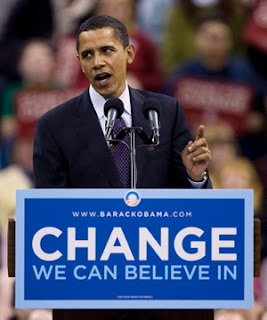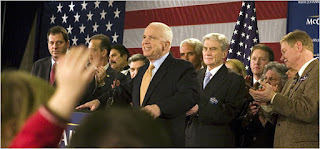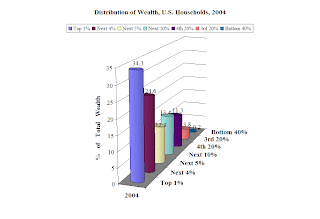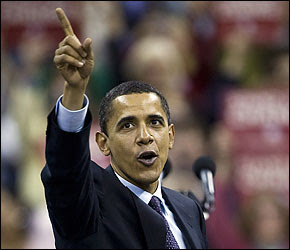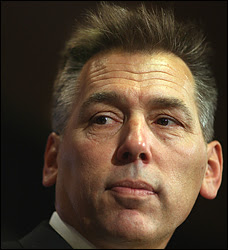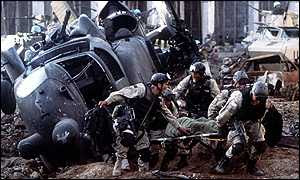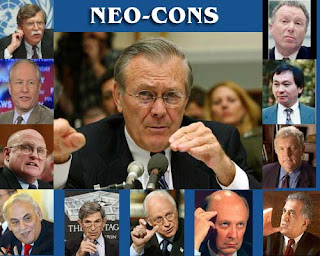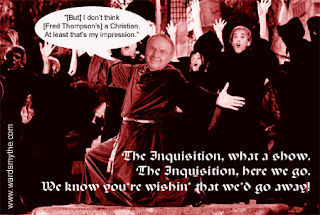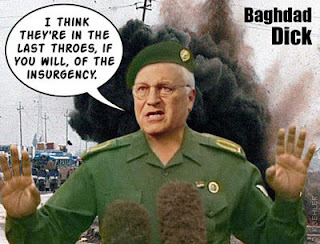
I keep harping on this theme: what does it mean to be conservative? What does it mean to be liberal? The terms are like caricatures most of the time. In logic and critical thinking, I like to talk about how people from both parties like to commit the Straw Man fallacy by exaggerating their opponent's stances. There are many times when the candidates aren't really very different from one another in what they'd actually do, but they like to make their opponent seem either radically right or radically left by painting them as too "Liberal" or too "Conservative."
Part of my point on this matter is that it's not good to be "too" anything.
I get that to Sean Hannity, for instance, to be conservative is to worship Ronald Reagan. I get that to be conservative, for them, to be against big government, tax increases of any kind, activist courts, and abortion. I get that it's to be on the side of religion against absolute secularism. I get that it's to be strong on defense.
The fact is that they think that Democrats are too "liberal" because they are thought to be the opposite of these. "Liberals," to their minds, want to increase the role of Big Government (read Federal Government), increase taxation, interpret the Constitution in an activist (non-strictly constructionist) manner, and they support a woman's right to choose. "Liberals," they believe, favor a secular trajectory for our nation over against religion, and are weak on defense.
I believed all of this from the time that Ronald Reagan ran for president to the time that George W. Bush too the Republican Party to the Dark Side. I supported Clinton enthusiastically in the meantime because he was middle-of-the-road in his policy-making, was extremely intelligent and articulate, and he appealed to us "Reagan Democrats."
But I've had to rethink all of that over time.

The real point is to have the "right" size government, and not to be ideologically for or against everything the Federal Government does. That's a point I learned a long time ago from E.F. Schumacher. I just never learned to put it into this context until now. The point, again, is to have the "right" amount of taxation and neither to be ideologically for or against taxation of any sort.
I do favor an interpretation of the Constitution that honors the intent of the law. I don't think the Court has a Constitutional right to make up stuff as they go, in effect becoming legislators. But the fact is that you can't get away from "interpretation," and sometimes Republicans sound like they think you can. The "strict constructionists" are often so ideological about this that they are blind to the fact that they can't eliminate interpretation from judicial judgments. We call these "interpretations" because that's exactly what they are. We should interpret wisely and in the spirit of law.
I am against second and third term abortions. I agree with Republicans that abortion got way out of control in our country. But I believe it's very difficult, if not impossible, to say when a "human" life begins. If we mean by "human" that human DNA constitute a person, then, life begins at conception, and all abortion should be banned. If we mean by "human" that a person isn't really there until some development of the embryo occurs, then it's difficult to say exactly where the magic moment of "becoming human" or "becoming a person" really occurs. I think that's there's enough doubt about it that people ought to have the right to choose during the first trimester. So, I'm neither with the ideologues on the right or left who say that abortion should always be prohibited or that it should always be allowed. The real point is to find a middle way that deals with the ambiguities and difficulties while respecting the rights of both mother and child.
I am against the secularist oppression of religious practice that would occur without resistance from those who practice religions. But I am also against the conservative religious-right's movement to conflate fundamentalist Christianity and American governance. We were never intended to have a theocracy. We have a secular government informed by Judeo-Christian as well as Greco-Roman principles. We have a secular government that was intended to respect the right to practice religion without favoring one over the other. That does not mean that the founders intended to practice governance with no regard for religion, or to legislate religion out of the public sphere. The real point is to have a religiously, spiritually informed body of legislators who do not favor their own religions over others.
Finally, the real point is to have the right amount of "Defense." If the Republicans keep up their current crusade, they might as well change the name of "Defense Department" back to its original, "War Department." We changed the name to emphasize our "defensive" posture as opposed to an aggressive one. So, I say let's act like we mean that. I'm all for a strong defense. I'm against being overly aggressive in making war with the rest of the world. It's bad for them. And it's bad for us.
The labels "Liberal" and "Conservative" are used in ways that aren't especially helpful to most of our debates. If every Democrat is to be labeled as a caricature-Liberal, then individual Democrats aren't given fair analysis. If every Republican is to be labeled as a caricature- Conservative, then individual Republicans aren't given fair analysis. The question should always be who we think will bring us the right amount of good governance with regard to all of these issues, regardless of party. Let's not sweep that debate aside with the all-too-easy labels of caricature-Liberal and caricature-Republican.
I am classically liberal in that I believe in freedom from authoritarian rule. I am liberal in the modern sense in believing there are some things that the Federal Government can do well. I am also liberal in the modern sense in believing that government has a responsibility to regulate the free market to the extent that justice requires it. But I have my conservative aspects, too. I think that the Federal Government can get too big. I believe it has interfered too much with the free market at times. I believe that it's possible to overly tax people. I think we should always strive to attain a just level of taxation, and that it should not be increased above that. I think that the courts have become overly activist at times, and that we should strive to find justices who are not driven to activism or callous to the needs of people who seek protection under the law. I defend the right of the religious to practice their religion, even in public forums. And I believe we must maintain a strong defense. Let's just make sure that we're truly keeping it defensive.
It's too easy and it's ultimately inaccurate to label oneself as liberal or conservative in an absolute manner. The real point is be more or less liberal or conservative when and where it's called for.
It is wise to find the middle way, being more liberal when and where one believes the government has become too constrained, and more conservative when and where one believes that the government has exceeded a just restraint. It's not easy to find the right way. It's much easier to embrace black-and-white ideologies. It's just not right.


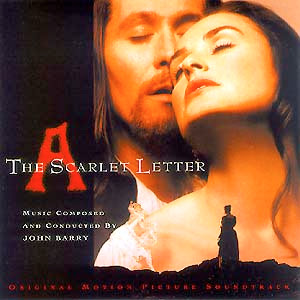




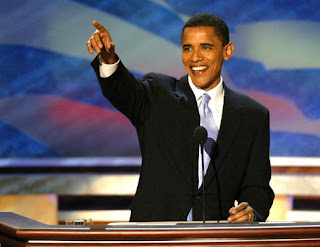
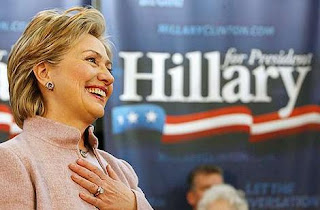




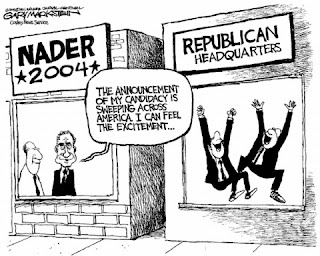



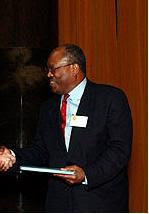
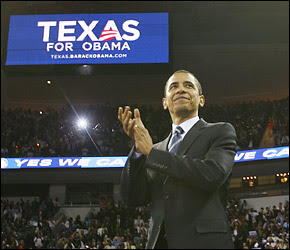

 Hillary Clinton is doing the only thing she can to stop Barack Obama: she is attacking in the nasty way that she does best. She is now accusing Obama of plagiarism, as if there's a politician alive who doesn't make plentiful use of language they approve of from a variety of sources, and she is saying that Obama's campaign is all about rhetoric without substance. She says that it's "just words." If she succeeds in winning the Democratic nomination, I'd have a hard time supporting her for the presidency.
Hillary Clinton is doing the only thing she can to stop Barack Obama: she is attacking in the nasty way that she does best. She is now accusing Obama of plagiarism, as if there's a politician alive who doesn't make plentiful use of language they approve of from a variety of sources, and she is saying that Obama's campaign is all about rhetoric without substance. She says that it's "just words." If she succeeds in winning the Democratic nomination, I'd have a hard time supporting her for the presidency.